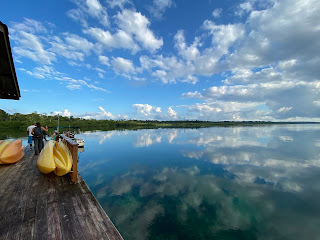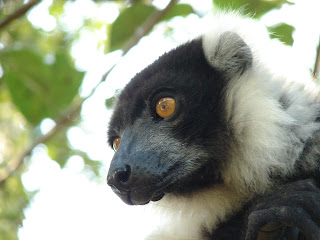I.
On New Year’s Day I was getting my Instant Pot off a shelf, when the heavy metal lid fell off, landing on my face and splitting my lip. Even though I didn’t lose a tooth or need stitches, it felt like a bad omen for the new year. Then Australia caught on fire, a preview of the autumn fires of our West coast. There would be more heartbreak and fires during the Black Lives Protests. And of course, the dumpster fire in the White House continued to rage on.
I pretended everything was fine, starting the year with my usual travels and work. I was busy operating part time at Kaiser Permanente. I spent a week in January and February at the Northern Navajo Medical Center in Shiprock, NM. I stayed cozy at a B&B in Farmington NM, walked foster dogs in Animas Park, found the local movie theatres. There was some weird green slime coming from the OR faucet, temporarily halting surgeries. It turned out to be copper residua, not an alien life force. That would come later.
In February my friend Anne and I went to Panama. We did a day tour of Panama City with a local guide, visiting the Canal, Casco Viejo (Old Town) and the modern center, and Alcon HiIl Viewpoint. The locals were fun and festive, partying like it was 1999. Anne and I then went to the appropriately named Tranquillo Bay eco-resort on Bastimentos, an island visited by Christopher Columbus in 1502. The four days passed quickly, kayaking, snorkeling, stand up paddle-boarding, and hiking. We saw lots of tropical bird, fish, and wildlife, including capuchin monkeys, sloths (2-toed and 3-toed), and stingrays. Little did we know that would be our last international adventure for the year.
I was foolish enough to take a walk in Fairbanks, Alaska in March. It was minus 27 degrees F, enough to freeze my eyebrows and eyelashes. I was visiting with my friends Shilpen and Yuming. We saw the International Ice Art competition, the Alaska pipeline, and the Arctic Circle. We had also come to view the Northern Lights, but the cloudy sky permitted only hazy shadows. The airports felt weird as we headed home to a changed world. It was the last time we would travel without masks, huddled together, sharing stories and food.
II.
He was always upbeat, a large man in a small store. The Leschi Market is a neighborhood institution with five aisles, one of which is devoted to a well curated wine selection. As the store was next to my condo, I was there several times a week. Steve was the owner, the greeter, the unofficial mayor of Leschi. He had met my niece and asked about her when he saw me. He was interested in my travels and my job. He knew I was a doctor, but never asked me about his own health problems. Of which he had many, too many to survive his ICU stay. This warm, gregarious man became an early Covid casualty, felled by his own sociability.
Seattle became an epicenter of the coronavirus. We were fortunate to have a progressive governor who rapidly instituted public health measures to minimize the spread and prepare for the surge. Our behaviors and language rapidly evolved to deal with the pandemic. The initial panic seems a lifetime ago, but it was only March when the masses hoarded toilet paper, hand sanitizer, and rice. Terms like “flattening the curve,” “social distancing,” and the “quarantini” entered our vernacular. Apparently hand washing was a novel concept for some people. FYI: It’s good everyday practice, not just for special occasions.
My parents had been planning to leave Kentucky in the spring. Their Louisville house sold in one day in mid-March, just as the national crisis started. Suddenly driving across the country and moving into an apartment building did not seem like such a good idea. Their current house was spacious, private, and peaceful, ideal for social distancing. I had to do some finagling with the real estate agent and buyer to get out of the contract (see Force Majeure). My parents have remained relatively comfortable and physically healthy, but the social isolation is taking its toll.
For the first six weeks of the pandemic, all my orthopedic work stopped. I filled my days with various projects, pretending like I was living a normal life. Every morning I savored the smell and taste of my coffee, watched the sunrise, stretched my body, grateful to be alive and healthy. I checked off tasks on my endless “to do” list (mop floors, change the sheets, organize the pantry). I cooked all my meals with an increasingly plant-based focus. The rigorous routine was not enough to stave off the daily existential crisis—the hollowness in the chest, the quickening of the breath, the pounding of the heart. “Is this going to be the rest of our lives, missing the things that make us most human, the things that bring us joy—music, art, theatre, travel, sharing food, intimacy? Is this all there is?” It was sadness and grief and loneliness rolled into one wracking ball. I meditated, did on-line yoga, reminded myself to breath in and out, to keep going. I walked through two pairs of running shoes.
Books have traditionally been my preferred coping mechanism during troubled times, my lifeline when I am drowning. I read to laugh, to escape, to feel the feels. So many feels that I read 60 books. In March I read Victor Frankl’s Man’s Search for Meaning, figuring if he could get through the Holocaust and remain optimistic, I could certainly manage a quarantine. I re-read Boccaccio’s Decameron and learned how the Florentine nobles wined, dined, and story-told their way through their pandemic. I finally read Anna Karenina and Wolf Hall. My favorite book from this year was Hamnet, a novel set in Shakespearean England about the Bard’s family, full of joy and grief, poetry and magic. It serves as a reminder that Shakespeare did his best work during the bubonic plague. I was lucky if I managed my morning pages.
Although I did not write much, I did throw myself into intellectual activities. I decided this was the time to learn to write code; I lasted one session. I recertified my BLS and ACLS training, in case I would need to do more than orthopedics. I completed the annual self-assessment exam for hand surgery; the annual maintenance of certification for orthopedic surgery, wrote a book chapter on global volunteering, and attended many virtual lectures on politics, art, environmental issues. In the fall, I took a Columbia colloquium, revisiting my favorite Core Curriculum classics (e.g. Homer, Sophocles, Virgil). I found myself excited for the weekly sessions, engaging in timeless ideas of morality and leadership, civic duty, transformations, journeys, and self-knowledge.
While engaging my cerebral side was great fun, I ultimately needed to feel useful. I was happy to go back to medical consulting work after six weeks. The work kept me busy, out of the house, out of my head. I returned to Shiprock in August, having been away since March. The Navajo Nation had instituted strict curfews and stay at home orders, which keeping the pandemic at bay. I started doing elective surgeries again, including more complex surgical cases. I felt myself becoming more a part of the community, feeling more accepted by staff, patients, and colleagues. I spent a day hiking and bouldering in Canyonlands. Then the next surge began in November...
III.
“Hope” is the thing with feathers -
That perches in the soul -
And sings the tune without the words -
And never stops - at all –
Emily Dickinson
I was filled with anticipation the days leading up to my first vaccine dose, and a sense of relief immediately afterwards. Since the presidential election, we have been guardedly optimistic, recognizing that after the man-made and natural disasters of the last year (indeed the last four years), nothing can be taken for granted.
In 2020, we created lists of silver linings, filled gratitude journals, said farewell to the things we do not miss. We have found our pods, those select people who share our need for connection, our respect for science, and willingness to exercise caution. And for those not in our pods, we have reached out and re-connected with our core people via Zoom and cellphones. We have learned to care from afar, to show kindness in non-physical ways, to smile with our eyes.
So as we leave this year and move forward, I share with you the Metta meditation:
May you feel safe. May you feel strong. May you feel happy. May you live with ease.
More pictures In Memoriam:2020











